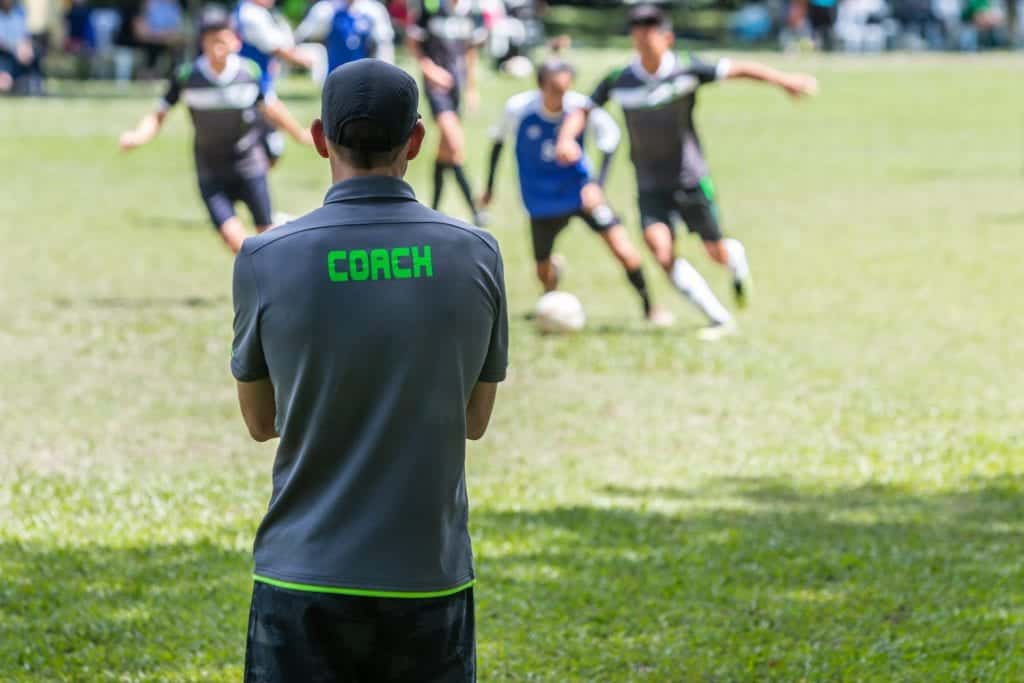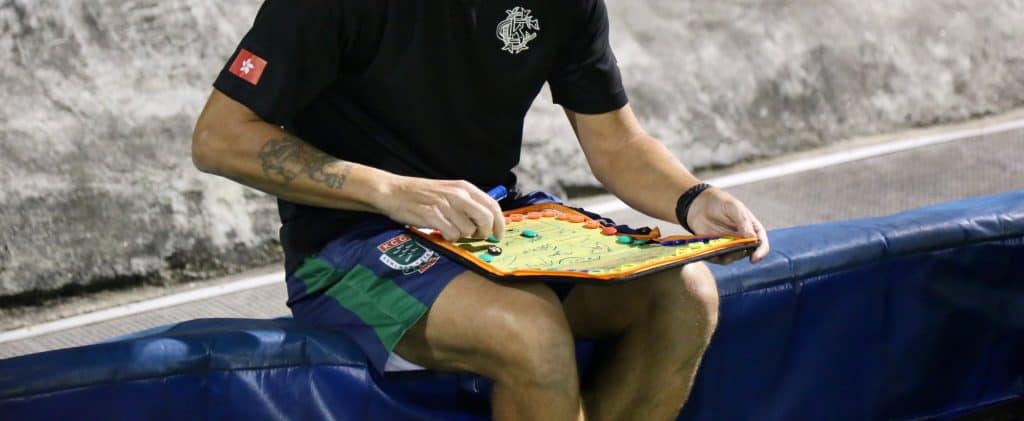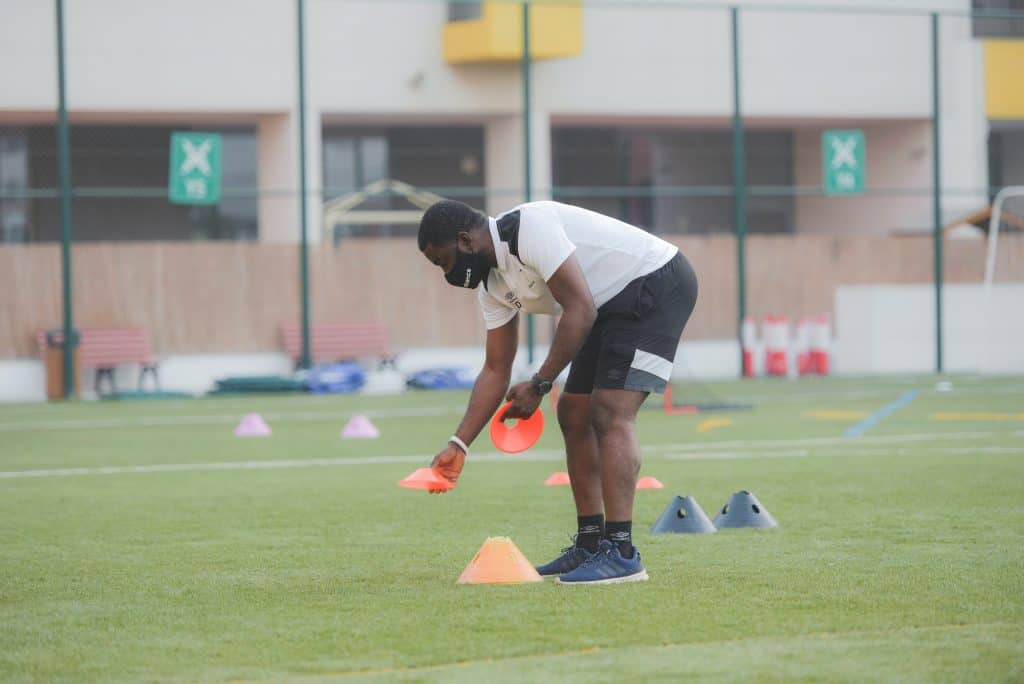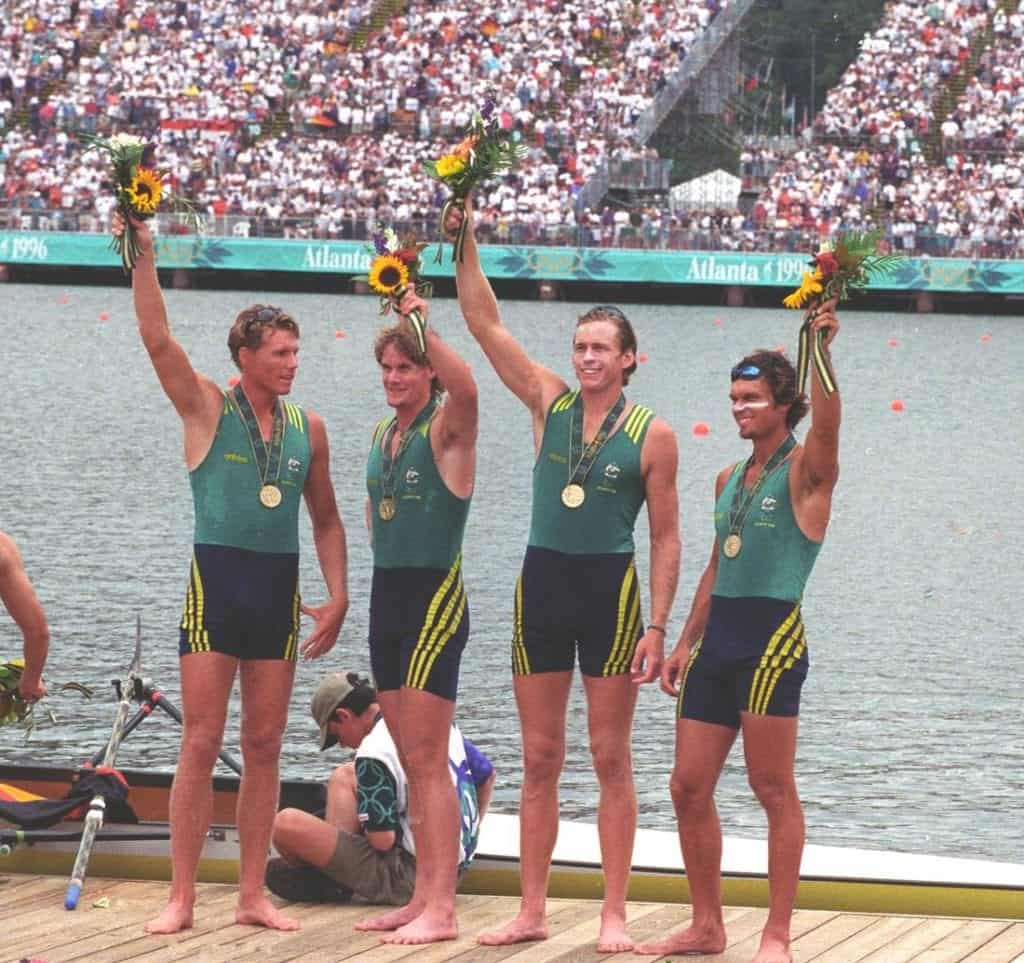Unlocking your Coaching Philosophy
When we look at leaders in any endeavor, we often see their success critically defined by their leadership philosophy, and when it comes to sport coaches it is exactly the same. Having a defined coaching philosophy is key to effective coaching (and leadership), but the process of developing and understanding your own philosophy is often sidelined. When your team relies on your performance as a coach as much as they do on technical execution for achieving a winning outcome, this process is a priority.
So, let’s dive into what a coaching philosophy is, who should develop one, and why you should. To help you take this learning one step further, we created the Coaching Philosophy Workbook for coaches to use to as a means for discovering and defining their own Sport Coaching Philosophy.
What is a Coaching Philosophy?
The definition of a coaching philosophy is a set of values, governing principles, and beliefs which determine why you do what you do and how you behave within the context of your coaching role. Every coaching philosophy should contain a succinct answer to the question, “Why do I coach?” Essentially, all coaches will have a coaching philosophy, though some may be applied through subconscious and instinctual understanding, while others are contained in a refined and recorded document. It’s also important to note that there is no one right or wrong coaching philosophy – what works for others may not work for you, with many factors contributing to what an individual’s unique philosophy will be.
Why is it important to develop a Coaching Philosophy?
Essentially, having a coaching philosophy is vital to any coach as it directly impacts upon their coaching practice. Having a set of guiding values, principles, and beliefs ensures consistency in your approach to your sport, enabling you to prioritize those areas that create your desired results. A defined coaching philosophy enables you to make well-judged decisions and actions. It is your consistency in behavior that creates respect and trust in your athletes, leading to a quality relationship.
Who should develop a Coaching Philosophy?
The short answer is, any coach who wants successful results in their coaching career. A coaching philosophy is valuable to coaches investing their time at all levels of sport, however developing a coaching philosophy is more often neglected by coaches early in their careers.
Research suggests that a coach’s perception of coaching philosophy is influenced by their experience level as a coach. Typically, less experienced coaches have difficulty understanding the concept behind a coaching philosophy and are more focused on making sessions ‘safe or fun’. But developing your coaching philosophy is a predominantly hands-on and ongoing development process, that should start at the same time as your career does. You will find that you are better in certain areas of coaching, from being more empathetic and engaging with the athletes, to the more technical aspects of coaching, or technology and measurement strategies. Your ‘coaching style’ will develop further the more coaching you do and you will get feedback from every session.
Seven-time Olympic rowing coach Tim McLaren emphasizes that, “The great thing about starting at the ‘bottom’ is that there is plenty to teach, and you have the ideal environment to practice your people management and skill acquisition.”
The ongoing process of understanding your preferred coaching style and developing your philosophy will emanate from these early years, and evolve with you as your experiences and exposure to different teams and coaches grow. Most often, it will initially reflect your own behaviors, attitudes, and background.
However, a defining quality of your coaching is also the degree of reinforcement and conviction you have about what you think is important. It often mirrors how you were as an athlete, how you were coached, or both.
Where you reinforce your coaching and lean into your convictions will become more evident with experience as your coaching and athlete-management skills improve. Tim confirmed that coaching philosophies align with growth saying, “They develop further ‘on the job’, rather than way before it. Your style of coaching is inextricably interwoven into your own behaviors, values, and experiences, continuing to develop through your example and the standards you set and reinforce with your team.”
How to Develop your Coaching Philosophy?
We know that this is the most important step, so Athlete Assessments’ Founder and Lead Coaching Consultant, Bo Hanson created the Coaching Philosophy Workbook to guide you through the process. We’ve taken years of experience, interviews with leading coaches, research, and testing to formulate the Five Step process to aid you in the development of your personal coaching philosophy. Written by a coach, for coaches, you will determine what are your coaching non-negotiables, learn from your personal experiences, identify your personal coaching style, discover your coaching philosophy, and then find strategies to keep your philosophy visible and alive now that you have defined it.
Bo acknowledges that a key part of developing and understanding his own personal coaching philosophy was to first understand his personal coaching style and that this will differ from those around him. Just as every coach has their own preferred way to behave as a coach, so does each athlete. So, within his personal coaching philosophy, he appreciates that what the concepts may look like to him, they may look different to each athlete or fellow coaches, so allowing the space and open communication about his philosophy is key.
Uncover or Evolve your Coaching Philosophy
Understanding and developing your coaching philosophy is critical. If you haven’t already, take the time today to focus on this important exercise and see how your athletes will benefit. Our Coaching Philosophy Workbook is a ‘how-to’ guide especially designed to assist coaches in developing their own personalized Sport Coaching Philosophy.
Coaching Philosophy Examples
At Athlete Assessments, we have found that the coaches and leaders we work with, have a great interest in the coaching philosophies of other coaches. And why wouldn’t they? Seeing and learning about how other leading coaches are defining their philosophies to form the foundation of their successful coaching approach, allows for ongoing growth and development.
Now you too can benefit from the philosophies other coaches have shared with us. You might find these useful in developing or further defining what your own coaching philosophy is. Or you might simply be interested in reading examples of coaching philosophies from other sport coaches.
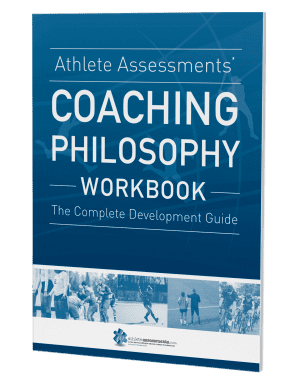
COACHING PHILOSOPHY
Workbook - The Complete Development Guide
Coaches are constantly told that having a well-defined Coaching Philosophy is a critical component of a successful career. BUT, it can be a challenge to develop on your own and it takes time to evolve.
We’ve taken years of experience, interviews with leading coaches, research and testing formulate this workbook for your benefit. Be guided step-by-step through this important process.
LOVE THIS ARTICLE?
DOWNLOAD YOUR FREE, PRINTABLE PDF COPY BY FILLING OUT THE FORM BELOW!
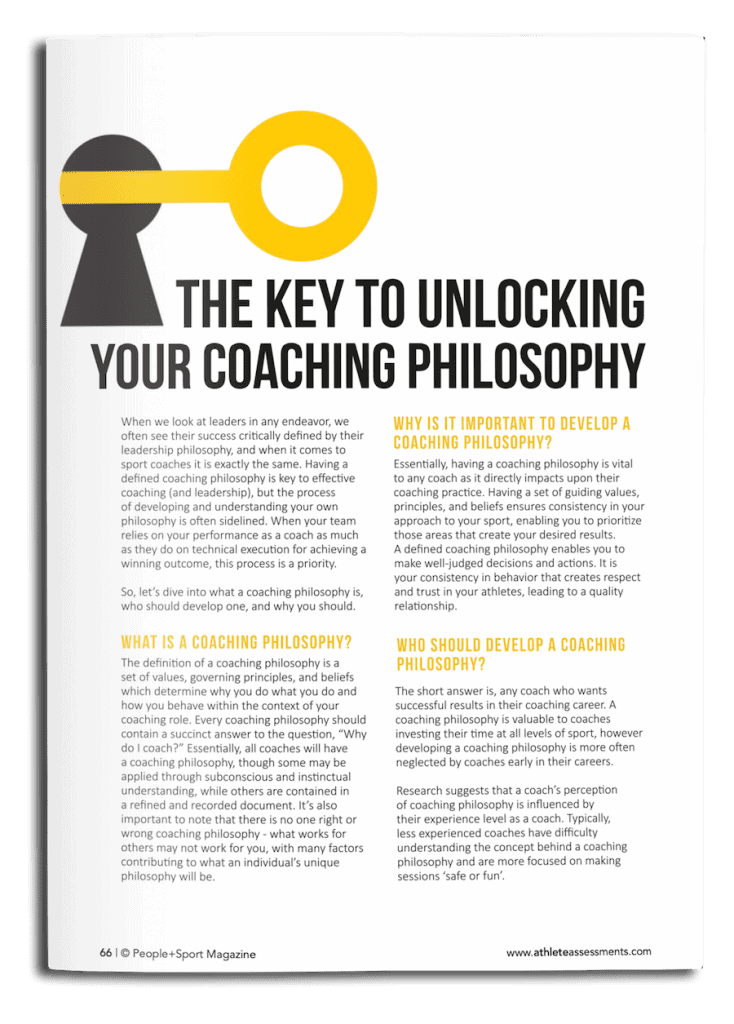
Where to from here?
The key to developing the ability to use all four coaching styles effectively is to first understand your natural preferences. Athlete Assessments’ CoachDISC Behavioral Profile supports this important step, using proven profiling techniques based on decades of behavioral research and many years of top-level sporting experience.
Building your Sport Coaching Philosophy on an awareness of your own coaching style and the unique way that you contribute to your athletes, brings you and the people who rely on you, closer to the results you all want. If we can help you be your best and provide any extra information just reach out and contact us.
Recommended Articles
Can a coach coach themself? It’s an interesting question to ponder. While the role of a coach is to constantly work with their athletes and team to develop and improve, and we know that coaches by nature and role can be excellent at developing others, what about when developing themselves?
Every time an athlete, coach or team strives to better their performance, they analyze themselves in action, identify areas to improve upon and make plans for change...
Find a phenomenal coach with a wealth of experience (and full trophy cabinet), and ask them what their coaching philosophy is. They will immediately provide you with a succinct account of what principles they adhere to and the standards they hold. So if top coaches have a coaching philosophy, do you?


